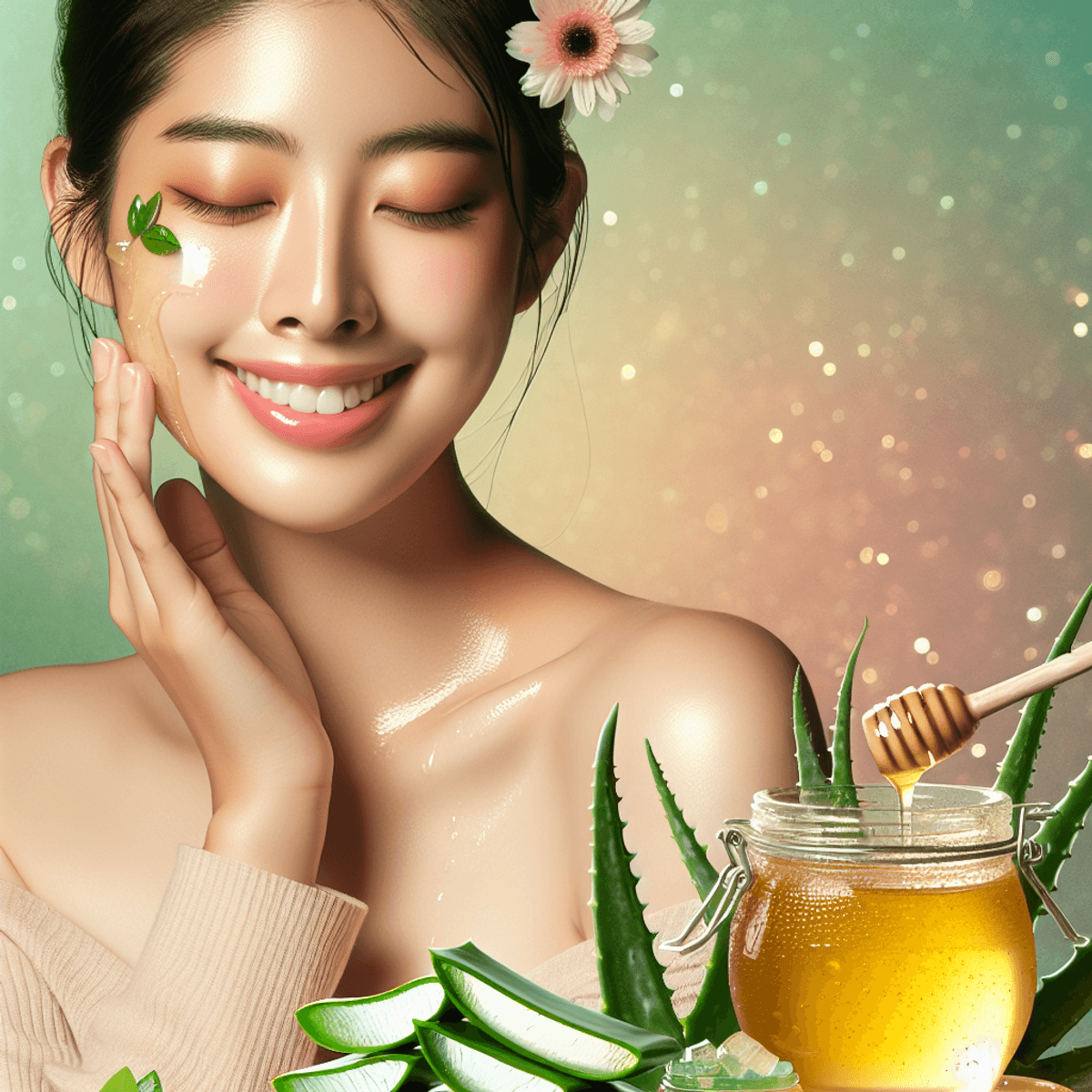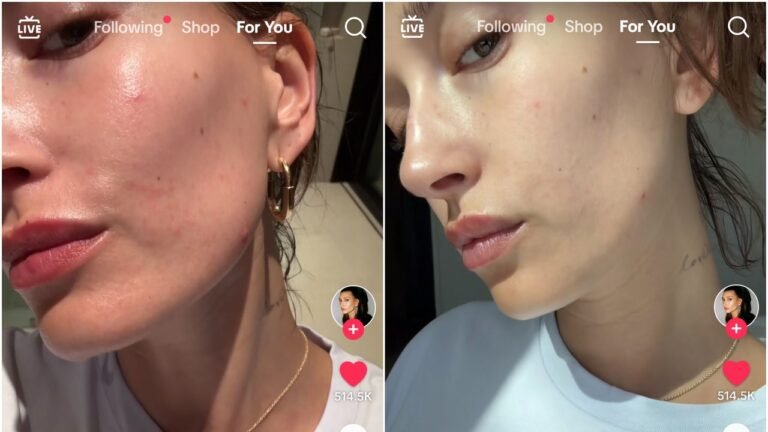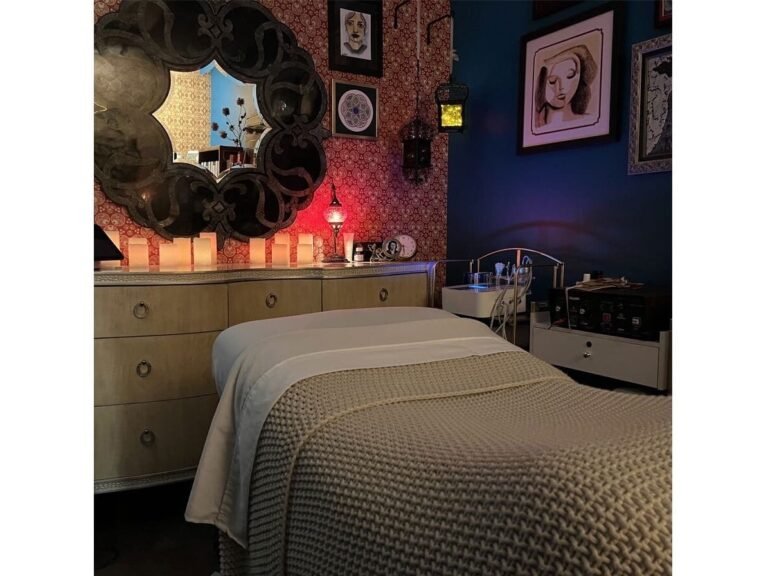How to Remove Pimples Naturally and Permanently?

Introduction
Acne is a common skin condition that affects millions of individuals worldwide. It shows up as pimples, blackheads, whiteheads, and cysts, often causing distress and lowering self-esteem. For many, finding an effective solution to remove pimples naturally and permanently is a top priority.
Natural remedies for pimple removal have gained popularity due to their gentle yet effective approach. Unlike chemical treatments, these remedies focus on reducing inflammation, fighting bacteria, and maintaining skin health without harsh side effects.
This article aims to provide you with comprehensive insights into various natural methods for achieving clear skin. By exploring different remedies and lifestyle changes, you can find the best approach to remove pimples naturally and maintain a blemish-free complexion.
Understanding Pimples
What Are Pimples?
Pimples, also known as acne, are small skin lesions or inflammations that occur when sebaceous (oil) glands become clogged and infected. They often appear on the face, forehead, chest, upper back, and shoulders due to the high number of oil glands in these areas.
What Causes Pimples?
Several factors contribute to the formation of pimples:
- Hormonal Changes: Hormones called androgens increase during puberty, causing the sebaceous glands to enlarge and produce more sebum. This can lead to clogged pores.
- Bacteria: The bacterium Propionibacterium acnes thrives in the oily environment of blocked pores, leading to inflammation and pimples.
- Clogged Pores: Dead skin cells can accumulate in hair follicles, mixing with sebum and forming a soft plug. This can result in whiteheads or blackheads.
Types of Acne
Acne can show up in different ways, each with its own features:
- Whiteheads: Closed comedones caused by clogged pores beneath the skin surface. They appear as small white bumps.
- Blackheads: Open comedones where the pore remains open, but the sebum inside oxidizes upon exposure to air, turning black.
- Papules: Small red or pink bumps that are inflamed but do not contain pus.
- Pustules: Inflammatory pimples filled with pus. They appear red at the base with a white or yellow center.
- Nodules: Large, painful lumps beneath the skin surface caused by severe inflammation and infection within hair follicles.
- Cystic Acne: Deep-seated pimples filled with pus that form cysts beneath the skin surface. Cystic acne is often painful and can lead to scarring.
Understanding these different types of acne is essential for determining how to get rid of pimples effectively. Each type may require a unique approach for treatment.
Natural Remedies for Pimples
1. Ice Cubes
Ice cubes are a simple yet effective remedy for reducing inflammation and redness caused by pimples. The cold temperature of the ice helps constrict blood vessels, which can decrease swelling and make pimples less noticeable. This method is particularly useful for those looking to reduce the appearance of large, inflamed acne lesions quickly.
How to Use Ice Cubes on Your Skin
- Prepare the Ice: Use clean, filtered water to make ice cubes. This ensures no contaminants will be applied to your skin.
- Wrap the Ice: Wrap an ice cube in a thin cloth or paper towel. Applying ice directly to the skin can cause damage or irritation.
- Cleanse Your Face: Before applying the ice, ensure your face is clean to avoid trapping any dirt under the skin.
- Apply the Ice: Gently press the wrapped ice cube against the pimple-affected area for 1-2 minutes. If you feel discomfort, remove it sooner.
- Take Breaks: Allow your skin to rest for at least 5 minutes before reapplying if necessary. Repeat this process up to three times daily.
- Moisturize Post-Treatment: After using ice cubes, apply a non-comedogenic moisturizer to keep your skin hydrated.
Using ice cubes as part of your acne treatment at home can provide immediate relief from inflammation and redness, making it easier to manage breakouts naturally and effectively.
2. Gentle Cleansing Routine
Keeping your face clean is essential to prevent clogged pores and breakouts. A gentle cleansing routine can help remove excess oil, dirt, and impurities without stripping your skin of its natural oils. This approach is crucial for those seeking natural remedies for pimples and effective acne treatment at home.
Benefits of a Gentle Cleansing Routine
- Oil control: Regular cleansing helps manage oil production, reducing the likelihood of clogged pores.
- Reduce inflammation: Gentle cleansers soothe the skin, minimizing irritation that can lead to pimples.
- Prevent breakouts: Keeping your face clean discourages the formation of new pimples.
Choosing the Right Cleanser
When choosing a cleanser, look for products labeled as non-comedogenic, which means they won’t clog pores. Here are some recommended gentle cleansers:
- Cetaphil Gentle Skin Cleanser: Known for its mild formula, it’s suitable for all skin types and won’t strip essential moisture.
- CeraVe Hydrating Facial Cleanser: Contains ceramides and hyaluronic acid to maintain the skin barrier while cleansing.
- La Roche-Posay Toleriane Hydrating Gentle Cleanser: Ideal for sensitive skin, this cleanser is free from harsh chemicals and fragrances.
How to Use Your Cleanser
Incorporating these cleansers into your daily facial cleansing routine can help you achieve clearer skin and reduce the frequency of breakouts. Remember to cleanse your face twice daily—once in the morning and once before bed—for optimal results.
3. Oil-Free Skincare Products
Non-comedogenic formulations are essential for acne-prone skin. These products are specifically designed to not clog pores, which helps reduce the risk of breakouts. When your skincare routine includes non-comedogenic products, you significantly lower the chances of developing new pimples.
Choosing Oil-Free Moisturizers:
- Look for labels that say “non-comedogenic” or “oil-free.”
- Prefer lightweight, water-based moisturizers over heavy, creamy ones.
- Consider products with ingredients like hyaluronic acid and glycerin, which hydrate without adding oil.
Selecting Sunscreens:
- Opt for mineral-based sunscreens containing zinc oxide or titanium dioxide.
- Ensure the sunscreen is labeled as “non-comedogenic” and has an SPF of at least 30.
- Gel-based sunscreens are often less likely to clog pores compared to their cream counterparts.
Makeup Recommendations:
- Choose foundations and concealers labeled as “non-comedogenic.”
- Mineral makeup is a good option as it tends to be lighter on the skin.
- Avoid heavy, oil-based makeup products that can exacerbate acne issues.
Incorporating these oil-free products into your skincare routine can make a significant difference in managing acne naturally and permanently. By preventing clogged pores, you help reduce inflammation and soothe skin effectively.
4. Green Tea Application
Green tea is well-known for its antioxidant properties, making it an effective natural remedy for pimples. The catechins found in green tea help fight acne-causing bacteria and reduce inflammation, which can soothe the skin and prevent further breakouts.
Benefits of Green Tea for Skin
- Antioxidant Properties: Catechins in green tea neutralize harmful free radicals that can damage the skin.
- Anti-inflammatory Effects: Reduces redness and swelling associated with acne.
- Antibacterial: Helps eliminate acne-causing bacteria.
For a more detailed understanding of the benefits of green tea for skin, continue reading below.
How to Incorporate Green Tea into Your Skincare Routine
- Green Tea Toner:
- Brew a cup of green tea and let it cool.
- Pour it into a clean spray bottle.
- Apply it to your face using a cotton pad or spray directly onto your skin.
- Mix 1 tablespoon of green tea leaves with 1 tablespoon of honey.
- Apply the mixture to your face and leave it on for 15-20 minutes.
- Rinse off with warm water.
- Green Tea Ice Cubes:
- Brew green tea and pour it into an ice cube tray.
- Freeze and use the cubes to gently massage inflamed areas.
Using green tea as part of your skincare routine can provide a natural way to reduce pimples and promote healthier skin. According to recent studies, the application of green tea in skincare has shown promising results in improving overall skin health.
5. Honey as a Natural Remedy
Honey offers numerous benefits as a natural remedy for pimples, owing to its powerful antimicrobial properties. It helps reduce inflammation and soothes the skin, making it an effective acne treatment at home.
Benefits of Honey:
- Antimicrobial Properties: Honey contains enzymes that produce hydrogen peroxide, a mild antiseptic. This makes it useful in combating acne-causing bacteria.
- Anti-inflammatory Effects: Honey helps reduce redness and swelling associated with pimples, providing relief to inflamed areas.
- Moisturizing Agent: Unlike many conventional acne treatments that dry out the skin, honey maintains skin hydration, reducing irritation.
DIY Honey and Yogurt Mask:
For a nourishing mask that can be applied to affected areas:
Ingredients:
- 1 tablespoon of raw honey
- 1 tablespoon of plain yogurt
Instructions:
- Mix the honey and yogurt in a small bowl until well combined.
- Apply the mixture evenly to clean skin, focusing on pimple-prone areas.
- Leave it on for 15-20 minutes.
- Rinse off with lukewarm water and pat dry.
This mask harnesses honey’s antimicrobial and anti-inflammatory properties alongside yogurt’s lactic acid, which gently exfoliates and soothes the skin.
6. Tea Tree Oil Treatment
Tea Tree Oil is a powerful natural remedy for pimples due to its antibacterial properties. It effectively reduces the size and redness of active breakouts, making it a popular choice in acne treatment at home.
Benefits of Tea Tree Oil
- Antibacterial Properties: Helps eliminate acne-causing bacteria.
- Anti-inflammatory Effects: Reduces swelling and redness.
- Natural Remedy: Offers a chemical-free alternative to over-the-counter treatments.
How to Use Tea Tree Oil Safely
- Dilution is Key: Undiluted tea tree oil can cause irritation. Mix 1 part tea tree oil with 9 parts water.
- Patch Test First: Apply the diluted solution to a small area of your skin to check for any adverse reactions.
- Application Method:
- Cleanse your face with a gentle cleanser and pat dry.
- Dip a cotton swab in the diluted tea tree oil solution.
- Apply directly to the pimple without rubbing it in.
Using tea tree oil as part of your skincare routine can significantly help reduce inflammation and soothe the skin, making it an essential component in learning how to remove pimples naturally and permanently.
7. Aloe Vera Gel Usage
Aloe vera is well-known for its soothing properties, making it an excellent option for natural remedies for pimples. Its anti-inflammatory and antibacterial qualities help reduce inflammation and soothe skin, effectively addressing both active pimples and post-acne marks.
Benefits of Aloe Vera for Skin:
- Soothing Irritation: Aloe vera gel alleviates redness and discomfort associated with angry pimples.
- Healing Properties: The gel helps heal acne lesions and diminish post-acne marks.
- Hydration: It provides moisture without clogging pores, essential for acne-prone skin.
How to Incorporate Aloe Vera Into Your Skincare Routine:
- Spot Treatment:
- Apply a small amount of pure aloe vera gel directly onto individual pimples.
- Leave it on overnight to reduce size and redness by morning.
- Overnight Gel:
- Use aloe vera gel as an all-over face treatment.
- Apply a thin layer before bedtime to allow its soothing properties to work overnight, promoting clearer skin by morning.
- DIY Masks:
- Combine aloe vera gel with other natural ingredients like honey or turmeric.
- Apply the mask to your face, leave it on for 15-20 minutes, then rinse thoroughly.
Incorporating aloe vera into your routine can enhance the effectiveness of your acne treatment at home. This versatile ingredient supports your journey toward clear skin naturally and permanently.
8. Apple Cider Vinegar Solution
Apple cider vinegar is a popular natural remedy for pimples because it can restore the skin’s natural acidity levels. This pH balance is important in preventing bacterial growth and further breakouts, making it an effective acne treatment at home.
How to Use Apple Cider Vinegar:
- Dilution: Start by diluting apple cider vinegar with water. A common ratio is 1 part apple cider vinegar to 3 parts water. If you have sensitive skin, consider adding more water.
- Application: Using a cotton ball or pad, gently apply the diluted solution to your skin, focusing on affected areas.
- Leave On: Allow the solution to sit on your skin for about 5-10 minutes.
- Rinse Off: Rinse thoroughly with lukewarm water and pat your skin dry.
- Frequency: Use this treatment once daily, gradually increasing frequency if no irritation occurs.
Benefits:
- pH Balance Skin Treatment: Helps maintain the skin’s natural pH, creating an environment where bacteria struggle to thrive.
- Bacterial Growth Prevention: The acetic acid in apple cider vinegar has antimicrobial properties that can help reduce inflammation and soothe skin.
- Acne Treatment: Its ability to balance pH and prevent bacterial growth also makes it a potent natural remedy for acne.
Incorporating apple cider vinegar into your skincare routine can be a potent way to tackle pimples naturally and permanently.
Lifestyle Changes to Support Clear Skin
1. Healthy Diet Choices for Clear Skin
Your diet plays a crucial role in maintaining clear skin. Consuming foods with anti-inflammatory properties can significantly reduce acne and other skin issues.
Foods to Include:
- Fatty Fish: Rich in omega-3 fatty acids, fish like salmon, mackerel, and sardines help reduce inflammation. Omega-3s can decrease the production of inflammatory compounds that contribute to acne.
- Colorful Fruits and Vegetables: These are high in antioxidants like vitamins A, C, and E. Examples include berries, oranges, spinach, and bell peppers. Antioxidants help combat oxidative stress that can lead to skin issues.
- Nuts and Seeds: Almonds, walnuts, and flaxseeds offer essential fatty acids and vitamins that support skin health.
- Whole Grains: Foods such as brown rice, quinoa, and whole wheat bread provide fiber that helps regulate blood sugar levels, reducing the risk of breakouts associated with high glycemic index foods.
Foods to Avoid or Limit:
Certain foods can make pimples worse by causing inflammation or increasing oil production.
- Sugary Snacks: Sweets like candies, cakes, and sodas spike your blood sugar levels. High blood sugar increases insulin production, which can boost oil production and lead to clogged pores.
- Greasy Fast Food: Fried foods often contain unhealthy fats that can promote inflammation. Reducing intake of items like french fries, burgers, and fried chicken can help keep your skin clear.
- Dairy Products: Some studies suggest a link between dairy consumption and acne due to hormones present in milk. Limiting milk, cheese, and ice cream might be beneficial if you notice outbreaks after consuming these products.
Adopting these dietary changes supports clearer skin by reducing inflammation and providing essential nutrients for overall skin health.
2. Staying Hydrated
The Importance of Water Intake for Healthy Skin
Proper hydration is crucial for maintaining healthy skin. Drinking enough water helps keep your skin plump and balanced, which can reduce the likelihood of pimples forming.
- Hydration supports overall skin health: When your skin is well-hydrated, it retains its elasticity and resilience, minimizing the risk of dryness and irritation that can lead to breakouts.
- Detoxification: Water helps flush out toxins from your body, reducing the buildup of impurities that may contribute to acne.
Recommended Daily Water Intake
Your daily water needs depend on various factors such as age, activity level, and climate. However, a general guideline is:
- Adults: Aim for at least 8 cups (64 ounces) of water per day.
- Active individuals: Increase your intake based on physical activity levels to compensate for fluid loss through sweat.
- Climate considerations: Hotter environments may require you to drink more water to stay adequately hydrated.
Incorporating these simple hydration practices into your routine can significantly complement your efforts in natural pimple removal. A well-hydrated body supports clearer, healthier skin by preventing dryness and facilitating the removal of toxins.
Maintaining a balance between hydration and other key lifestyle changes like a healthy diet rich in anti-inflammatory foods can enhance your overall skincare regimen.
3. Zinc Supplements: A Potential Aid in Acne Management?
Dietary habits can significantly impact acne development. Incorporating zinc supplements into your routine is one lifestyle change that may complement your natural pimple removal efforts.
How Zinc Helps with Acne
Research-backed evidence suggests that zinc supplementation may help reduce both inflammation levels and the frequency/severity of breakouts over time. According to studies, zinc’s anti-inflammatory properties are beneficial in calming irritated skin and reducing redness associated with acne.
Choosing the Right Supplement
- Forms of Zinc: Zinc supplements come in various forms such as zinc gluconate, zinc sulfate, and zinc acetate. Consult with a healthcare professional to determine which form is best for you.
- Dosage: It’s crucial to follow recommended dosages, typically ranging from 30 to 45 mg per day, unless advised otherwise by a healthcare provider.
Dietary Sources of Zinc
In addition to supplements, you can also increase your zinc intake through food:
- Seafood: Oysters are particularly high in zinc.
- Meat: Beef and pork provide substantial amounts of zinc.
- Legumes: Chickpeas, lentils, and beans are excellent plant-based sources.
- Seeds and Nuts: Pumpkin seeds and cashews can boost your zinc intake.
Incorporating these foods into your diet can promote clear skin while supporting overall health. Always consult with a healthcare professional before starting any new supplement regimen to ensure it aligns with your individual health needs.
4. Stress Management Techniques
Keeping Your Skin Calm During Turbulent Times!
Chronic stress significantly impacts our bodies’ hormone regulation systems, often triggering flare-ups or worsening existing acne. Implementing effective stress management techniques can help maintain clear skin.
Consider these practices:
- Meditation: Engaging in regular meditation sessions can reduce stress hormones like cortisol, which are known to aggravate acne.
- Yoga: Combining physical postures with breathing exercises, yoga promotes relaxation and reduces stress levels, contributing to clearer skin.
- Deep Breathing Exercises: Simple deep breathing techniques can instantly calm your mind and body, mitigating stress-induced breakouts.
- Physical Activity: Regular exercise helps manage stress by releasing endorphins, the body’s natural mood lifters.
A balanced lifestyle that includes healthy diet choices for clear skin is crucial. Dietary habits play a significant role in acne development. Opt for an anti-inflammatory diet rich in clear skin foods like fatty fish high in omega-3s and colorful fruits and vegetables packed with antioxidants.
Incorporating these habits complements your natural pimple removal efforts, ensuring you address both external and internal factors that contribute to acne. Reducing stress effectively can be the key to maintaining a clear complexion.
By integrating these practices into your daily routine, you not only support your mental health but also enhance your skin’s resilience against breakouts.
Quick Fixes for Pimples Overnight
When you need a quick solution to reduce the appearance of pimples, consider these easy remedies:
- Ice Cubes: Applying ice can minimize swelling and redness. Wrap an ice cube in a clean cloth and press it against the pimple for a few minutes.
- Tea Tree Oil: Known for its antibacterial properties, dab a small amount of diluted tea tree oil on the pimple. This can reduce inflammation and size.
- Aloe Vera Gel: Known for its soothing effects, aloe vera can be applied directly to the skin. It helps reduce irritation and accelerates healing.
- Honey Spot Treatment: Apply a dab of honey to the affected area before bed. Its antimicrobial properties help reduce bacteria and calm inflamed skin.
- Green Tea Bags: Steep a green tea bag in hot water, allow it to cool, then place it directly on the pimple. The antioxidants in green tea help reduce inflammation.
These methods offer temporary relief but are effective in managing sudden breakouts while you pursue long-term solutions on how to remove pimples naturally and permanently.
FAQs (Frequently Asked Questions)
What are some natural remedies for removing pimples?
Natural remedies for removing pimples include using ice cubes to reduce swelling, maintaining a gentle cleansing routine, applying oil-free skincare products, utilizing green tea for its antioxidant properties, and using honey or tea tree oil for their soothing effects.
How can I remove pimples overnight?
To remove pimples overnight, you can apply ice cubes to reduce inflammation, use a spot treatment with tea tree oil, or apply aloe vera gel to soothe the skin. Additionally, maintaining a clean face and avoiding heavy makeup can help.
What lifestyle changes can support clear skin?
Lifestyle changes that support clear skin include adopting a healthy diet rich in anti-inflammatory foods like fatty fish and colorful fruits/vegetables, staying hydrated, and avoiding sugary snacks and greasy fast food.
What is the role of apple cider vinegar in pimple removal?
Apple cider vinegar helps restore the skin’s natural acidity levels and prevents bacterial growth. It is important to dilute it properly before applying it topically to avoid irritation.
How does green tea benefit acne-prone skin?
Green tea contains catechins that have antioxidant properties which can help fight acne-causing bacteria. It can be incorporated into your skincare routine as a toner or mask.
Is honey effective for treating pimples?
Yes, honey has antimicrobial properties that can soothe inflamed pimples. A DIY recipe for a nourishing honey and yogurt mask can be applied to the affected areas for added benefits.










